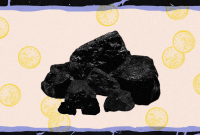Support strong Canadian climate journalism for 2025
First Nations in Ontario are calling for a one-year pause on online mining claims, saying the system infringes on their right to proper consultation.
Ontario has a constitutional duty to consult Indigenous Peoples before allowing mining on their land. But on Wednesday, the Chiefs of Ontario said the province’s Mining Lands Administration System (MLAS) has allowed prospectors to register mining claims online much faster than First Nations can respond.
“A 365-day moratorium is necessary,” said Ontario Regional Chief Glen Hare in a press release. “It will give First Nations communities the time that is required to assess the impacts of the MLAS, the effects of the mine claims currently being staked, as well as develop a process whereby meaningful and fulsome engagement and consultation can be integrated into the MLAS processes.”
In 2018, Ontario introduced MLAS. Under the system, anyone can register a claim to mine land, manage existing claims and apply for a prospecting license online — without ever leaving their desk.
According to the Chiefs of Ontario, the online system led to a huge rise in the number of mining claims staked on their territory. The assembly said in 2023, some First Nations saw the number of claims being staked on their homelands rise up to 30 per cent.
The system also changed how the province met its duty to consult First Nations. Under Section 35 of the Constitution Act, the Crown must consult Indigenous Peoples before approving development on First Nations, Inuit or Métis land.
The online MLAS means prospectors can claim land for mining without engaging nearby First Nations in person. Instead, First Nations leadership gets notices of nearby claims and requests for comment sent to their email or post office.
“Mining claim-staking continues to grow at a pace that far outstrips the ability for First Nations to respond and directly impacts our inherent, treaty, and constitutionally protected rights,” Hare said in a press release.
In an email to Canada’s National Observer, a spokesperson for Ontario’s Ministry of Indigenous Affairs said its Aboriginal Participation Fund supports First Nations throughout the consultation process.
“Ontario meets the Crown’s duty to consult obligations on all resource projects across the province,” the spokesperson wrote. “Ontario will continue to chart a path towards meaningful reconciliation as we look to improve the health, social and economic well-being of all First Nations.”
Under the proposed moratorium, the Chiefs of Ontario ask the government to pause the system and stop staking until First Nations can respond to each claim and find a way to incorporate consultation into the system.
“We are aware that the stance on using lands for development and resource extraction is not homogenous across Ontario First Nations,” Hare said. “This moratorium is not intended to, in any way, impede on those who are currently or wish to undertake activities that will bolster economic development in their territories.”
Last September, the B.C. Supreme Court decided a similar online mining administration system didn’t meet the province’s duty to consult First Nations. It gave the province until March 2025 to change the process to include the duty to consult.
Isaac Phan Nay / Canada’s National Observer / Local Journalism Initiative






Comments